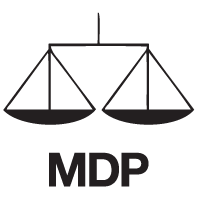25 October 2011, Male’
The Criminal Court of the Republic of Maldives last night ordered the release of Ghassan Maumoon, the son of former President Gayoom, from Police detention after he was arrested for throwing a large piece of wood at protesters
The Court order comes against a background of growing public anger against the increasingly blatant collusion between politicians loyal to the former autocratic President, Maumoon Abdul Gayoom, and senior members of the judiciary – most of whom were appointed by Gayoom during his thirty years in power.
Ghassan Maumoon had been summoned to Police Headquarters twice for questioning since the incident occurred last Thursday night. He was informed of his arrest yesterday morning at around 1000 hours. Subsequently his lawyers lodged a case of habeas corpus at the Criminal Court which immediately convened a hearing at 1600 hours. This was in itself extremely unusual as the established time for remand hearings is 1900 hours. It is also noteworthy that the judgement was handed down with unprecedented speed – Gassan’s arrest was judged unlawful at around 2200 hours the same evening.
In its ruling, the Court held that the arrest was in contravention to Article 46 of the Constitution. The Article reads: “No person shall be arrested or detained for an offence unless the arresting officer observes the offence being committed, or has reasonable and probable grounds or evidence to believe the person has committed an offence or is about to commit an offence, or under the authority of an arrest warrant issued by the court.”
The Police submitted witness statements, medical report of the victim and video footage of Mr. Ghassan Maumoon committing the act. It was therefore well within the realm of the “reasonable and probable grounds or evidence” test; casting serious doubts as to the credibility and independence of the court judgement. This point was made afterwards by Police Superintendent Mohamed Jinah who insisted that the arrest was lawful as police had “reasonable and probable grounds” to suspect Ghassan had committed a crime, and were prepared to submit early evidence in this regard. “If Ghassan’s arrest was unlawful” said Jinah, “then every single person that the police have ever arrested and brought before the courts was arrested in violation of the Constitution”.
Speaking about Ghassan’s release, acting Chair of the Maldives Democratic Party (MDP), Moosa Manik, drew attention to the increasingly open double-standards and politicization being employed by senior members of the judiciary. “When former President Gayoom’s son is arrested – for an extremely serious offence, namely leaving a young man with brain damage – the court convenes extraordinarily at 1600h the same day and, after ignoring materials provided by the police to support his detention, is able to hand down a judgment of unlawful arrest that evening. Compare this with the treatment of Ilham, an MDP activist who was arrested for damaging private property and who the very same Criminal Court decided, at the same time as freeing Ghassan, to remand in custody for a further five days pending investigations”.
“Senior members of the judiciary are no longer even offering the pretence of due process or rule of law; they are acting according to their own personal interests and allegiances, with complete contempt for justice. A young man is lying in hospital paralyzed down one side, and the chief suspect in the attack last night walked free from court and went with his friends and family to celebrate their “victory”. On the same day, a ‘normal’ citizen, who lacks Ghassan’s family connections, has his detention – on far less serious charges – extended by five days. This is double-standards in double-quick time”.
“The MDP and the Government of the Maldives has always welcomed international engagement with human rights in the Maldives, and we appreciate the role of our international partners in holding politicians to account for their actions. However, it is equally important for those same partners to hold the judiciary accountable for its behaviour. We hope they will do so now”.
Responding to Azima’s arguments at court today, Police Superintendent Mohamed Jinah insisted that the arrest was lawful as police had reasonable grounds to suspect Gassan had committed a crime and were prepared to submit early evidence.
If Gassan’s arrest was unlawful, said Jinah, “everyone police have arrested and brought before the court [for extension of detention] was arrested in violation of the constitution.”
ENDS
